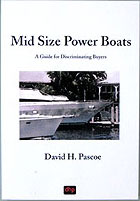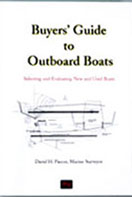Chapter 2
Excerpt
This chapter discusses the very important relationship between the surveyor, his client and the service being offered.
Extensive travel is a fact of life for the professional surveyor, one which frequently complicates his work and causes serious financial difficulties.
Further, the surveyor will occasionally, if not frequently, find himself dealing with an international clientele.
This usually presents problems of logistics, language, finances and local customs that must be confronted and successfully overcome.
For that reason I have devoted considerable discussion to outlining some of the pitfalls and how to avoid them.
One of the most important skills that a surveyor can develop is the ability to establish a good client repoire. The surveyor's ability to communicate with the client is every bit as important as his knowledge and surveying skills.
It's not enough that the surveyor does a good job surveying the vessel; unless he develops the ability to effectively communicate with the client, his efforts and good intentions may be for naught if, for whatever reason, the client is not satisfied with the surveyor's efforts.
Complaints and disputes most often result from a lack of, or poor communications. So let's take a look at some of the dynamics involved.
Qualifying the Client
Taking a little time to assess a clients motives vis-a-vis the service you are providing can go a long way toward heading off trouble.
If we can learn what the clients expectations are, we at least have a chance to satisfy those expectations or to explain why we might not be able to fulfill them.
As with a physician, merely providing the service is not enough. The client is looking to us to provide professional advice, but this advice usually goes well beyond merely performing a survey. Like a doctor, we have to develop a bedside manner.
Occasionally surveyors encounter clients who want them to catalogue virtually everything that they can find wrong with a boat, every nick, scratch and burned out light bulb. In all likelihood, such clients intend to beat up the seller with a long list of defects and is angling for a large adjustment in the price. Yet, the surveyor's objective is not to present as negative view of the vessel as possible, nor do we want to be put in the position of doing so.
The opposite extreme is a client who is so in love with a particular yacht, that he's willing to blind himself to any bad news. This is the most dangerous type of client because he is unwilling to hear what the surveyor has to say.
This is the type of buyer that is prone to getting himself in financial trouble by overlooking or glossing over some of the real costs of ownership. Then, when he does get in trouble, he starts searching for a way out, a scapegoat, and the surveyor is likely to be "it".
The later type is quite common. He's usually a first time buyer and is likely to have some very unrealistic concepts of boat ownership. A similar type of client is the one whose ambitions are bigger than his checking account and is attempting to buy too much boat for too little money. And while our first reaction might be, "That's not MY problem," a little careful thought about that reaction will show that it very well could end up YOUR problem, i.e., when the client decides that you didn't do enough to properly advise him of some little problem that is now a very big problem.
(Additional spaces are added for easy screen reading.)
Table of Contents: Chapter 2
2. Business Practices and Client Relations 25
Qualifying the Client 25
Initial Contact 27
A Good Sales Technique 28
Getting Paid 29
Setting and Quoting Fees 31
Cancellations 32
Merchant Account and Credit Cards 33
Client’s Presence 34
Brokers vs Direct Sales 36
Survey Logistics 37
Travelling to Foreign Countries 38A Question of Quality 46
The First-time Buyer 48
Old Boats 49
Fast Closing Deals 52
Repair Costs 54
Working Conditions 54
Dealing With the Seller 55
 Surveying Fiberglass Power Boats
Surveying Fiberglass Power Boats - 2nd Edition
by David H. Pascoe
Soft Cover
480 pages
Publisher: D. H. Pascoe & Co., Inc.
Published: 2005
Language: English
ISBN-10: 0965649601
ISBN-13: 9780965649605
In Stock
HOME >
David Pascoe - Biography
David Pascoe is a second generation marine surveyor in his family who began his surveying career at age 16 as an apprentice in 1965 as the era of wooden boats was drawing to a close.
Certified by the National Association of Marine Surveyors in 1972, he has conducted over 5,000 pre purchase surveys in addition to having conducted hundreds of boating accident investigations, including fires, sinkings, hull failures and machinery failure analysis.
Over forty years of knowledge and experience are brought to bear in following books. David Pascoe is the author of:
- "Mid Size Power Boats" (2003)
- "Buyers’ Guide to Outboard Boats" (2002)
- "Surveying Fiberglass Power Boats" (2001, 2nd Edition - 2005)
- "Marine Investigations" (2004).
In addition to readers in the United States, boaters and boat industry professionals worldwide from over 70 countries have purchased David Pascoe's books, since introduction of his first book in 2001.
In 2012, David Pascoe has retired from marine surveying business at age 65.
On November 23rd, 2018, David Pascoe has passed away at age 71.





Normally orders ship the same day, if placed before 12:00 PM Eastern time.